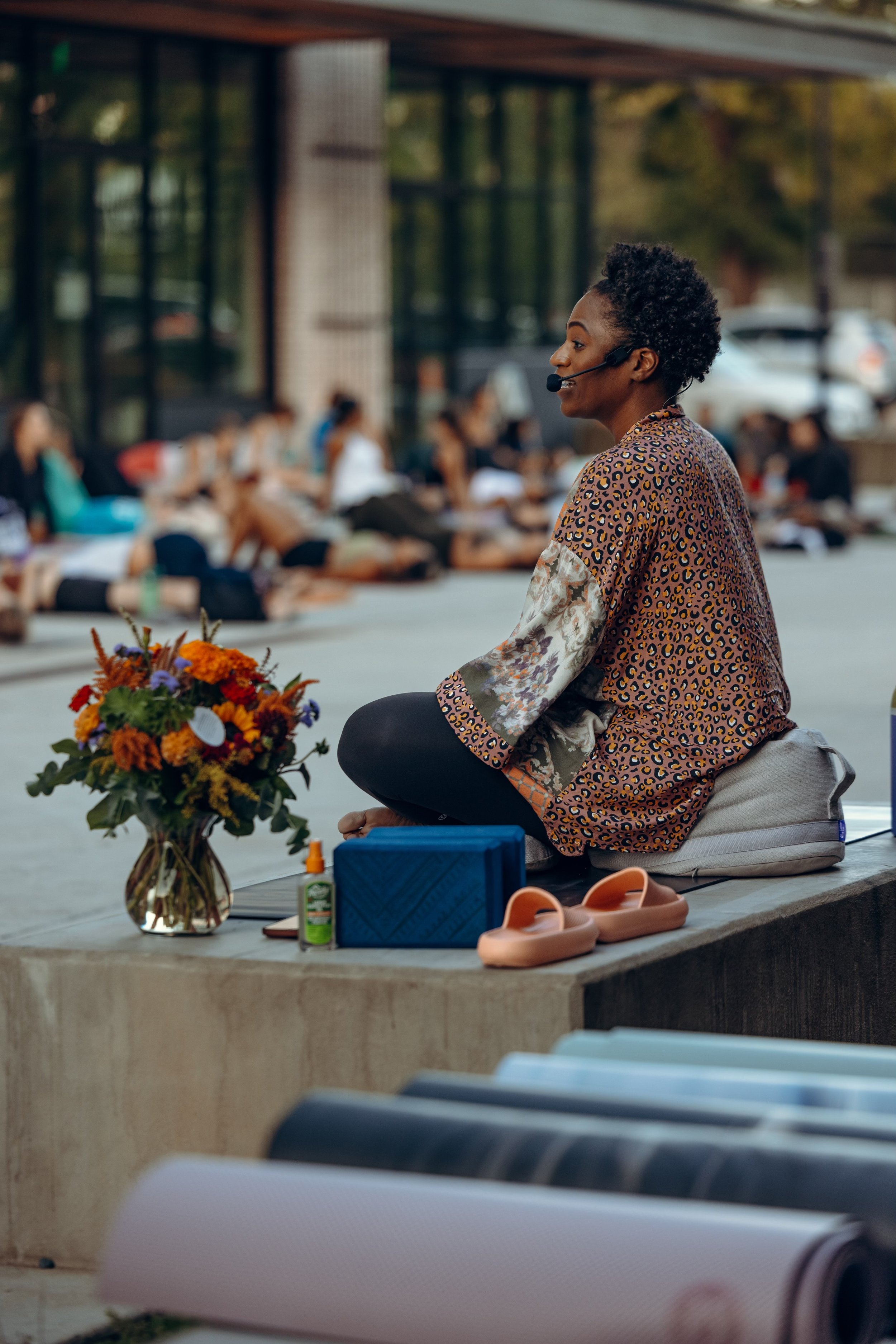
Mindfulness Based Stress Reduction
The MBSR course is a transformative, evidence-based journey designed to equip you with tools for resilience, stress reduction, and mindful living. The course originated as a public health project in 1979 by Jon Kabat-Zinn, PhD, a renowned author, scientist, yogi and meditation practitioner, at the University of Massachusetts Medical Center Stress Reduction Clinic. MBSR was initially tailored for patients living with chronic conditions that did not respond to traditional medical treatments.
Today, MBSR is taught worldwide and continues to seamlessly blend ancient mindfulness practices with contemporary insights, providing a holistic approach to well-being. Numerous studies affirm MBSR's effectiveness in alleviating chronic pain, anxiety, depression, and overall stress.
MBSR Course at-a-Glance
-
Orientation
Discovering Mindfulness
Meet the members of your cohort. Together, we’ll review the 8-week curriculum, as well as the science and benefits of mindfulness.
-
Week 1
Awakening Awareness
Initiate a shift from autopilot to mindful awareness. Explore the practice of slowing down and cultivating awareness of the body.
-
Week 2
The Lens of Perception
Examine the influence of perception on stress response. We’ll discuss how the way we see things determines how we react or respond.
-
Week 3
The Power in Presence
This week, we’ll incorporate a variety of mindful practices, including mindful movement, and share insights and challenges from the practice.
-
Week 4
Bringing Awareness to Patterns
Understand the physiological and psychological bases of stress reactivity and learn mindful strategies to shift from reaction to response.
-
Week 5
Mindfulness in Stress Response
Explore how the practice is showing up in your daily life, interrupting patterns around being stuck or maladaptive coping mechanisms.
-
All Day Retreat
Day of Practice
This full day of practice invites participants to see their life through the practice and what can arise without the usual demands and distractions.
-
Week 6
Building Resilience
Continuing on the insights and challenges from the all-day retreat, we’ll shift our focus to interpersonal mindfulness for communication.
-
Week 7
Everyday Mindfulness
Consistent practice invites insights and discoveries and this class explores how to continue integrating mindful practices into your life.
-
Week 8
Reflect & Commit
In this final session of the program, we’ll review lessons learned and embrace the closure of the program and the beginning of the rest of your life.

FAQs
-
This course supports stress management through mindfulness meditation and movement techniques for individuals of all experience levels. Whether you're dealing with stress, anxiety, chronic pain, or seeking greater well-being, you'll learn practical, evidence-based tools to build resilience, find balance, and foster clarity.
Ideal for those who are:
Facing stressful times and need resilience strategies
Seeking holistic approaches to well-being
Looking for practical coping tools
Aiming for mental and emotional clarity
Open to growth and transformation
All you need is an open mind and commitment to practice. No experience required.
-
Participants learn various mindfulness meditation techniques through guided meditation and movement throughout the 8-week course. These techniques support present moment awareness to reduce reactivity to stressors.
Each weekly session is 2-2.5 hours (plus 8-hour all day retreat) with 10-20 people cultivating a supportive community.
Note: Mindful movement practices are adaptable to support participant’s current level of mobility.
-
MBSR is not a substitute for seeking or receiving medical treatment. Studies, systematic reviews, and meta-analyses have demonstrated individuals with conditions like anxiety, chronic pain, and depression have benefited from participating in an 8-week MBSR course.
-
Brown University’s School of Professional Studies has a great description of MBSR and MBCT and how these programs are similar and different.
-
PHYSICAL RISKS
Taking care of yourself is the highest priority of this course. Participants are encouraged to explore their limits, examing the edges of their boundaries, but not going beyond them.
EMOTIONAL RISKS
At the beginning of the course, strong feelings of sadness, anger, fear or anxiety can arise, due to participants paying attention in a more conscious way for the first time.
You may make discoveries about yourself that you like and dislike.
A history of trauma, abuse, addiction to substances, or suicidality may heighten these reactions. I encourage you to use your judgement to assess if this is the best time for you to participate in the course.
-
No, MBSR is a secular (non-religious) program rooted in mindfulness principles from contemplative traditions but remains accessible to participants of all faiths or no specific faith.
-
Yes, participants that attend the orientation, 6 weekly sessions, and the All Day Retreat will receive a certificate of completion at the end of this course.
-
Investment of Time: About 45 minutes of daily mindfulness and meditation practice with 2.5 hours of weekly class participation (plus one all day retreat of ~8 hours)
Financial Investment: As part of my commitment to accessibility, please contact me about available partial scholarships.
